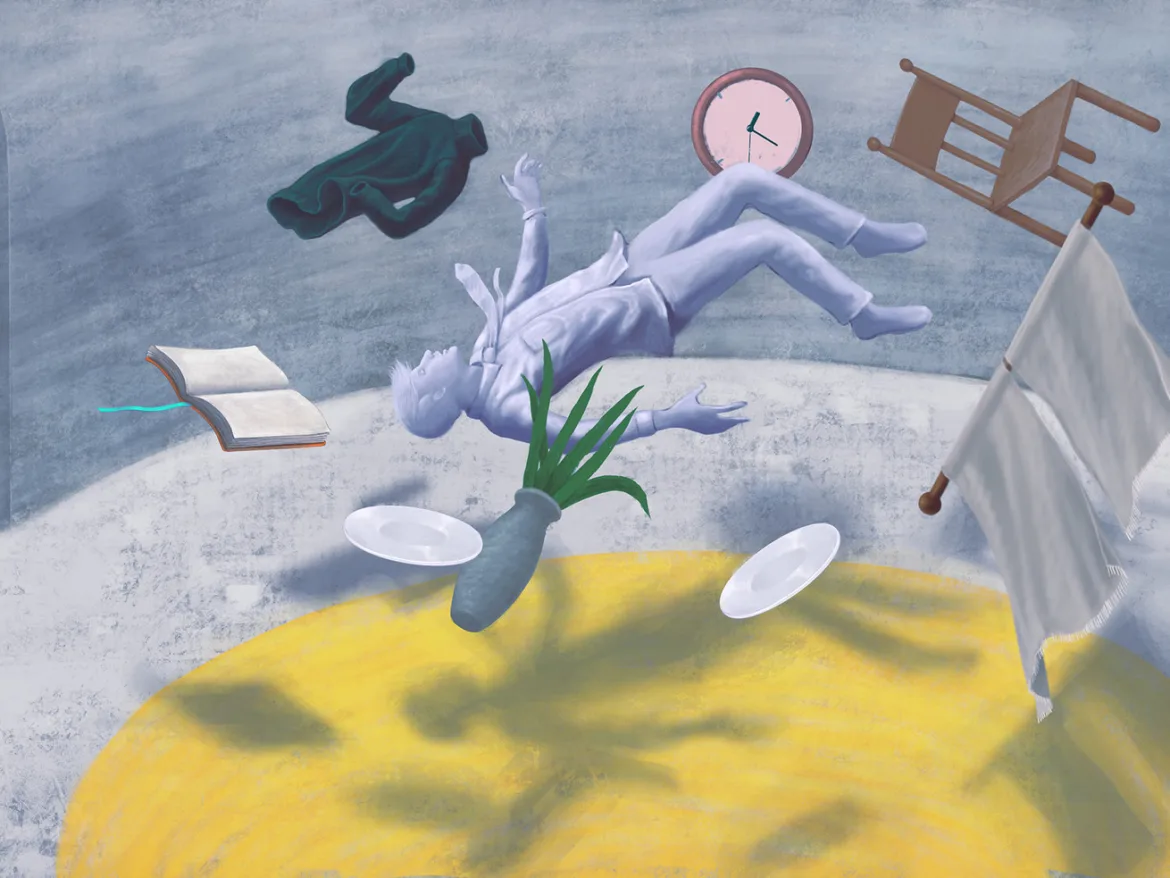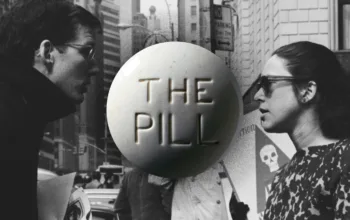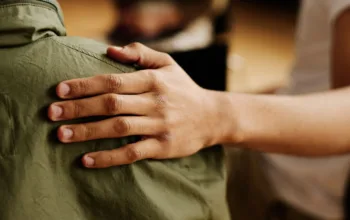What philosophy has to say about midlife crises.
What’s the point of philosophy?
It’s an old question, maybe one of the oldest in the history of philosophy, and there has never been a consensus answer. Some people think the point of philosophy is to make the world make sense, to show how everything hangs together. For others, philosophy is a practical tool that ought to tell us how to live.
If you’re in the latter camp, then it’s fair to say that you think of philosophy as a form of self-help. It’s a tradition of thought that — in theory, at least — can guide you to a better life, or something like that. And I don’t think that’s too much to ask of philosophy. What good is all that ruminating if it can’t offer you something useful when you’re anxious or depressed or mired in one of those dreaded midlife crises?
Kieran Setiya is a philosopher at MIT and the author of several books, most recently Life Is Hard: How Philosophy Can Help Us Find Our Way and Midlife: A Philosophical Guide. Setiya’s work is uncommonly accessible and a great example of philosophy that really tries to wrestle with the concrete problems of everyday life.
I recently invited Setiya on The Gray Area to talk about the perils of middle age and how philosophy has helped pull us out of the dark. Below is an excerpt of our conversation, edited for length and clarity. As always, there’s much more in the full podcast, so listen to and follow The Gray Area on Apple Podcasts, Spotify, Stitcher, or wherever you find podcasts. New episodes drop every Monday.
Sean Illing
You wrote a book called Life Is Hard. Not that your philosophy of life can be summed up in three words, but if you had to sum it up in three words, is that it?
Kieran Setiya
I think it is. Ancient philosophers like Plato and Aristotle thought about the ideal life and they tried to provide a blueprint for — and a map toward — it. And that can be both unrealistic and in a certain way self-punitive. Often the right way to approach the ideal life is to think, “That’s not available. I shouldn’t beat myself up about the fact that that’s not available.” Really living well, or living as well as you can, is about dealing with the ways in which life is hard.
Sean Illing
How do you define a midlife crisis?
Kieran Setiya
The midlife crisis is one of those funny cultural phenomena that has a particular date of origin. In 1965, this Canadian psychoanalyst Elliott Jaques writes a paper, “Death and the Midlife Crisis,” and that’s the origin of the phrase. Jacques was looking at patients and the lives of artists who experienced midlife creative crises. These were mostly people in their 30s and it doesn’t really fit the stereotype of the midlife crisis today.
There’s been a shift in the way people think about the midlife crisis. The idea now is that people’s life satisfaction takes the form of a gentle U-shape, that basically, even if it’s not a crisis, people tend to be at their lowest ebb in their 40s. This is true for men and women, and it’s true around the world to differing degrees, but it’s pretty pervasive.
So when people like me talk about the midlife crisis, what they really have in mind is more like a midlife malaise. It may not reach the crisis level, but there seems to be something distinctively challenging about finding meaning and orientation in this midlife period.
Sean Illing
What is it about this period that generates all this anxiety?
Kieran Setiya
There are many midlife crises; it’s not just one thing. I think some of them are looking to the past. There’s regret. There’s the sense that your options have narrowed. Whatever possibilities might’ve seemed open to you earlier, whatever choices you’ve made, you’re at a point where there are many kinds of lives that might have been really attractive to you, and now it’s clear in a vivid, material way that you can’t live them.
There’s also regret that things have gone wrong in your life, you’ve made mistakes, bad things have happened, and now the project is, “How do I live the rest of my life in this imperfect circumstance?” The dream life is off the table for most of us.
People also have a sense that most of life is occupied by this daily grind. Rather than things that make life seem positively valuable, it’s just one thing after another. And then death starts to look like it’s at a distance that you can measure in terms you really palpably understand. You have a sense of what a decade is like, and there’s only three or four left at best.
Sean Illing
I’m 42 and I can feel all of that. When you’re young, the future is pure potential. Ahead is nothing but freedom and choices. But as you get older, life shrinks, responsibilities pile up, and you get trapped in the consequences of the decisions you’ve made. That’s a hard thing to wrestle with.
Kieran Setiya
I think that’s exactly right. Part of what’s philosophically puzzling about this is that it’s not news. Whatever your sense of options was when you were 20, you knew you weren’t going to get to do all of those things. What this suggests is that there’s a profound difference between knowing that things might go a certain way, well or badly, and knowing in concrete detail how they went well or badly.
Part of the sense of missing out has to do with what philosophers call “incommensurable values.” The idea that if you’re choosing between $50 and $100, you take the $100 and you don’t have a moment’s regret. But if you’re choosing between going to a concert or staying home and spending time with your kid, either way you’re going to miss out on something that is irreplaceable. One of the things we experience in midlife is all the kinds of lives we don’t get to live that are different from our life, and there’s no real compensation for that, and that can be very painful.
On the other hand, I think it’s useful to see the flip side. The only way you could avoid that kind of missing out is if the world was suddenly totally impoverished of variety. Or you were so monomaniacal, you just didn’t care about anything but money, for instance. And you don’t really want that.
There’s a way in which the sense that there’s so much in the world we’ll never be able to experience is a manifestation of something we really shouldn’t regret, and in fact should cherish, namely the evaluative richness of the world, the diversity of good things. And there’s a consolation in that.
Sean Illing
One of the arguments you make is how easily we can delude ourselves when we start pining for the roads not traveled. “What if I really went for it? What if I tried to become a novelist, or a musician, or what if I joined that commune?” Or whatever life fantasy you had when you were younger.
But if you take that seriously and consider what it really means, you might not like it, because the things you might value the most in your life now, like your children, they don’t exist if you had zigged instead of zagging 15 or 20 years ago. That’s what it means to have lived that alternative life.
Kieran Setiya
Philosophy can lead us toward this kind of unhelpful abstraction, but it can also tell us what’s going wrong with it. The thought, “I could have had a better life, things could have gone better for me”: It’s almost always tempting and true, but when you think through what it would mean in concrete terms — what would have happened if your failed marriage had not happened?
Often the answer is that you would never have had your kid, or wouldn’t have met these people. And you might think, “Yeah, but I would have had some other unspecifiable friends who would have been great, and some other unspecifiable kid who would have been great.” But I think we rightly don’t evaluate our lives just in terms of those kinds of abstract possibilities, but in terms of attachments to particulars.
So if you just ask yourself, “Could my life have been better?” you’re throwing away one of the basic sources of consolation, a rational consolation, which is attachment to the particularity of the good things in your own life, even if you acknowledge that they’re not perfect and that there are other things that could have been better.
Sean Illing
I will say, though, that when real pain strikes, it’s not always easy to find relief in abstract arguments. Two of the hardest moments of my adult life were the sudden loss of my mother a few years ago and the unexpected loss of a baby last year.
Like a lot of people, I did that thing where I felt victimized, like the world’s conspiring against me. But then you go through the anger of all that and realize that you’re not uniquely unlucky, that this happens to people every day. Pain and loss are part of life, as central to life as anything else, and good philosophy, whether it’s in academic books or novels or films, can help remind us of that, and I guess it helped me in that way.
Kieran Setiya
I’m sorry to hear about both of those losses. I think what philosophy has to do is what human beings have to do when faced with those kinds of difficulties, which is not switch too rapidly into what I call assurance advice mode, which is saying, “It’s all going to be fine. Or here’s what you do.” Those are things we do in personal interaction, but they’re also versions of philosophical approaches to the difficulties of life.
There’s the kind of theodicy where philosophers argue that all is for the best. They’ve got some proof that although this seems bad, it’s going to work out well. Or they have some theory where they say, “My philosophical principle is this, I’ll just apply it to your situation.” And those are rarely good philosophical tactics for dealing with the kind of difficulties you’re describing, for reasons that are not unrelated to the fact that they’re rarely good interpersonal ways of approaching difficulty.
The starting point is sitting with difficulty, acknowledging it, trying to take in what’s really happening, really describing the particularity of it. It’s connected with a kind of philosophical methodology that I have come to embrace. And it’s a shift from thinking, “Well, philosophy is going to be about coming up with really cool arguments to prove you should think this or that,” to thinking, “There’s a real continuity between the literary and human description of phenomena like grief and philosophical reflection.”
Because often what philosophical reflection provides is less a proof that you should live this way and more concepts with which to articulate your experience and then structure and guide how you relate to reality. And seen that way, we can understand how philosophy can operate as self-help.
To hear the rest of the conversation, click here, and be sure to follow The Gray Area on Apple Podcasts, Spotify, Pandora, or wherever you listen to podcasts.



